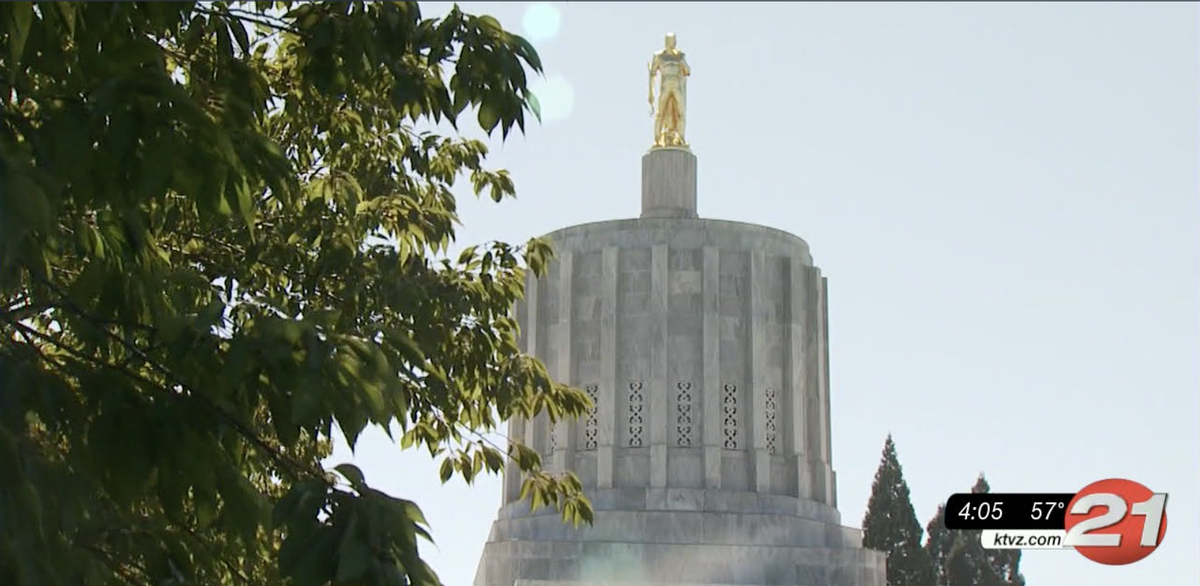Eugene Democrat says foes misunderstood effort to stop ‘disaster profiteering’

A one-page bill quietly introduced at the start of the Oregon Legislature has raised some eyebrows around the state, as it would add language to existing law, stating the governor would have the authority to seize “any real or personal property” after an emergency is declared.
The summary atop House Bill 2238, introduced by state Rep. Marty Wilde, D-Eugene, stated it “clarifies” the governor’s authority and later added, “An owner of property that is used or possessed only temporarily under this section is not entitled to compensation, except as the owner may prove entitlement to compensation” under Article I, Section 18 of the Oregon Constitution.
The bill also referred to ORS 401.188, which details “management of resources during emergency,” including the governor’s existing ability to issue, amend and enforce rules after declaring a state of emergency, such as rationing, freezing and the use of quotas.
Amid criticism by some of Gov. Brown’s COVID-19-related executive orders, the bill was bound to spark some questions and concern, had it advanced in Salem.
The governor’s office did not respond to a request for comment. But Wilde told NewsChannel 21 late last week that his bill is not moving forward this session, due to “political opposition.”
“In fairness, I think folks have misunderstood exactly what the bill would and would not do,” Wilde said.
Wilde’s office explained in a summary sent to NewsChannel 21 that the bill relates to the state’s eminent domain authority, which can be used to condemn property after a written offer, if it’s needed due to “an emergency that poses a threat to persons or property exists and that the immediate possession of the property is necessary.”
The background notes that such seizures are “often temporary, for example, using a farmer’s field for a fire camp.”
“Under this current law,” the summary stated, “there is a problem with disaster profiteering by landowners, because the state is required to make an offer as if (it plans) the taking of the land permanently during a time of emergency. This process can also delay … the state’s use of the land in an emergency to combat a fire, respond to an earthquake, etc. Also, the current law (is) unclear as to the impact if the courts are closed because of the emergency.”
The proposed legislation “removes the state’s requirement to file a condemnation action during an emergency if the taking of the property is only temporary,” the summary stated, stressing that the measure “does not remove anyone’s constitutional right … to just compensation for property taken for public use.”
If the owner is entitled, the state still would have to offer fair compensation and pay any damages. And as they can now, the owner can decline an offer they feel is inadequate and file what’s called an “inverse condemnation” lawsuit.
But the summary concluded by stating that “HB 2238 is not moving forward this session.”
In an email that Wilde said he plans to send out to his constituents on Monday, the lawmaker said his “bill on emergency preparedness” in the wake of last fall’s devastating wildfires “has gotten some notice.”
“As sometimes happens, it has been mischaracterized by interests that put private profiteering before the public good,” he wrote.
Wilde said he spent 26 years in military service on three continents and that while “the worst of times often brings out the best in people,” he “first ran into disaster profiteering in the Middle East,” which he called “a rat’s nest of overpriced contracts, the result of nepotism and ‘special deals’ with people tied to the local government. We terminated them and awarded new contracts that relied on fair competition and saved US tax dollars.”
“Most of the locals I met were patriots who were grateful that we were there to defend them, but others were in it to make a dishonest buck off of your taxes,” Wilde wrote.
“I also see profiteering in Oregon,” Wilde added, noting how the owners of property on the coast sought for emergency services equipment to be pre-positioned in the event of an earthquake “rejected two third-party, impartial estimates and demanded twice the value of the property.”
The lawmaker said “the difficulty in getting equipment out to the McKenzie fires got me looking at Oregon’s laws regarding temporary use of private property in an emergency. They’re not well set up to help us work together in an emergency,” as “temporary use of property is treated the same as a government ‘taking.’”
“The current requirements are a recipe for obstructionism by those who would profit from their neighbor’s need,” Wilde wrote.
“While the bill isn’t likely to move forward this session, I’ll keep fighting for the public interest and against those who seek to profit at your expense in an emergency,” he added.
Original post: (KTVZ) News Channel 21, Bend, Oregon, Jan 31, 2021
Related article in Legislative Bill Alerts
Date: 2021-02-01 11:11